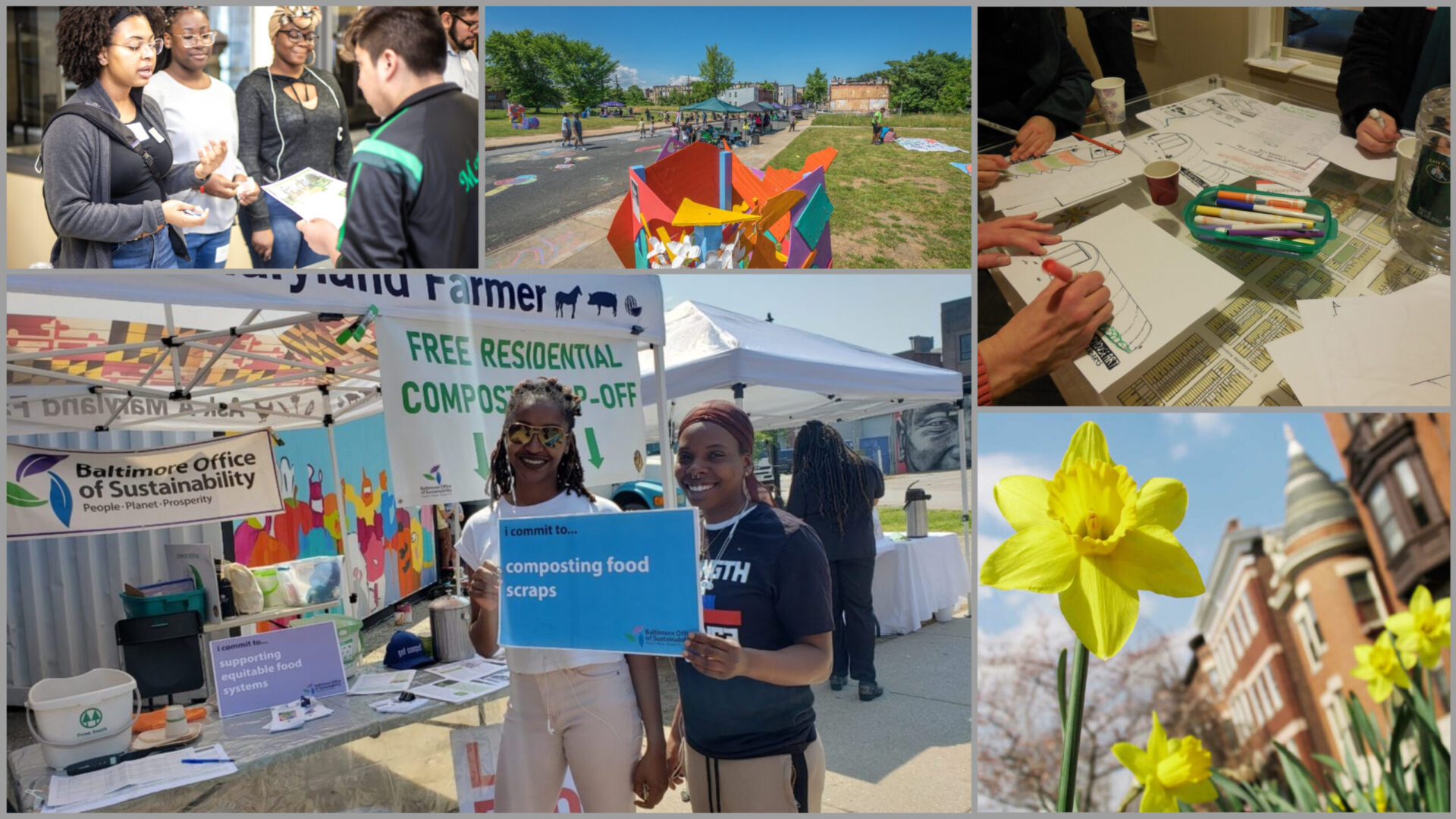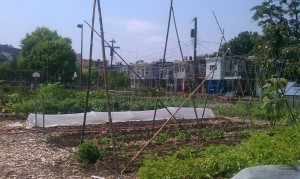The Plan
Baltimore City has adopted its first urban agriculture plan! Homegrown Baltimore: Grow Local is an ambitious roadmap for supporting and expanding the production of locally grown food in Baltimore City. The plan documents the history, benefits, and types of urban agriculture in Baltimore; lays out current local urban agriculture efforts and the policies that affect them; and identifies challenges and provides recommendations for creating a more robust urban agriculture sector for our city. All types of food production, from backyard gardening to commercial farming, are considered.
Farmers and other stakeholders submitted twenty sets of comments in response to the draft plan, many of which were incorporated into the final version. The final version of the plan received a vote of support from the Commission on Sustainability in October 2013, and was adopted by the Baltimore City Planning Commission in November 2013.
Download the plan here.
Land Leasing Initiative
Are you a farmer with at least a year of production experience, who’s interested in working with us to find city-owned land on which to farm? Prequalification applications are accepted any time to the Homegrown Baltimore Land Leasing Initiative. If accepted, you will be qualified to negotiate with the City for a five-year lease for farming on vacant land. Two farm leases have been executed so far, one in Sandtown-Winchester and one in South Clifton Park, for a total of three acres. A third is underway. It is anticipated that as much as 20 more acres of city-owned land could be leased out for urban agriculture in the next 10 years.
Download the Prequalification Application here.
Animal Husbandry
The Baltimore City Health Department regulates the keeping of animals. In 2012 and 2013, the Office of Sustainability worked with the Health Department and interested citizens to craft regulations that better support urban agriculture. Today, the citizens of Baltimore can keep chickens, bees, rabbits, and dwarf, miniature, and pygmy goats. In order to keep any of these animals, you must apply for a one-time permit from the Health Department, for which there is an $80 fee per type of animal (not per individual animal). Community gardens and urban farms get special consideration when it comes to chickens, and may request permission to keep more than would normally be allowed at a residence.
Read the regulations here.
Soil Safety Policy
One of the recommendations of the Homegrown Baltimore: Grow Local plan is to develop soil safety standards for the city. In 2014, the Office of Sustainability did just that, with a great deal of support and input from our partners, particularly the Johns Hopkins Center for a Livable Future. Our Soil Safety Policy provides guidance to anyone wishing to grow food for human consumption in Baltimore, and also lays out requirements for those wishing to receive a use permit for a new community garden or urban farm once Baltimore’s new Zoning Code comes into effect.
Read the policy here.


